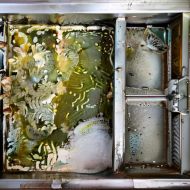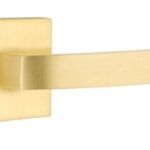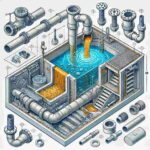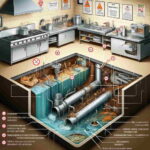Why You Should Not Delay the Cleaning of Your Grease Trap?

As a restaurant owner, you know all too well the importance of maintaining your grease trap. Not only do grease traps help protect both your pipes and commercial kitchen from potential sewer problems, but they also reduce odor as well as long-term operational costs by preventing harmful cooking liquids from overloading municipal sewers or treatment plant systems. Unfortunately, there is often an inclination to delay cleaning – or having it serviced at all – due to the cost involved and a general lack of knowledge about how dependent a restaurant’s success can be upon proper functioning equipment! However, this course of action could prove costly in the long run if clogged lines result in lesser productivity or even dangerous health risks for customers or staff. Thus, understanding why you should not delay having your grease trap regularly inspected and serviced is essential for business owners that wish to remain successful while simultaneously protecting both their patrons and employees alike.
What Is a Grease Trap and Why Should You Keep It Cleaned Out
A grease trap is an essential component for any establishment that deals with food preparation, cooking, or washing dishes. It is a plumbing device that catches grease and oil before it enters the wastewater system. Without a grease trap, the build-up of fats, oils, and grease can lead to blockages and backups in pipes, bad odors throughout the establishment, and expensive repairs. Generally, it is recommended that a grease trap is cleaned every three months or as frequently as needed depending on the business activities. A clean grease trap ensures that wastewater flows freely and it helps to maintain public health standards, as it reduces the risk of contamination through an efficient drainage system. Therefore, keeping a grease trap regularly cleaned is essential for the smooth running of your business.
How Neglecting Your Grease Trap Can Cause Major Problems
Neglecting your grease trap can lead to major problems that are expensive and time-consuming to fix. The grease trap plays an essential function in any commercial kitchen by capturing fat and oils from wastewater before it enters the sewage system, which can clog pipes, cause backups, and harm the environment. If you ignore your grease trap, you’ll face a host of issues, including foul odors, slow drainage, and potential health hazards. Grease buildup and blockages can also cause costly equipment failures and violations of local regulations. Therefore, regular maintenance, cleaning, and inspection of your grease trap are critical for preventing such problems and keeping your restaurant, hotel, or other facility running smoothly. Trust a professional service to keep your grease trap in top condition and avoid the headaches of neglect.
The Benefits of Regularly Cleaning Your Grease Trap
Maintaining a clean grease trap is not only important for maintaining a safe and hygienic environment, but it is also essential to ensure the efficient operation of your cooking equipment. Grease traps are designed to capture fats, oils, and greases from kitchen wastewater before it enters the plumbing system. However, these waste substances can accumulate quickly and create blockages, leading to unpleasant odors and potentially costly repairs. Regular cleaning of your grease trap can help to prevent these issues and prolong the lifespan of your kitchen equipment. Additionally, it can also help to ensure compliance with local environmental laws and regulations. So, don’t overlook the importance of regularly cleaning your grease trap –it’s a small price to pay for the many benefits it provides.
Who Should Be Responsible for Cleaning the Grease Trap
The proper handling and maintenance of a grease trap are essential for the smooth functioning of any establishment that deals with oily and greasy waste. Therefore, the question of who should be responsible for cleaning the grease trap has become a significant concern for many restaurants and other food service providers. Depending on the location, size, and type of establishment, the responsibility for cleaning the grease trap may fall on the owner, the employees, a professional cleaning service, or a combination thereof. Whatever the scenario, it is crucial to ensure that the cleaning is done promptly and regularly, to avoid any potential health hazards and regulatory fines. Keeping the grease trap impeccably clean requires vigilance and commitment, and it is undoubtedly a collective responsibility.
Tips for Keeping the Grease Trap Cleaner Longer
As a food service operator, you know that keeping your kitchen clean is crucial. One essential part of maintaining a hygienic environment is your grease trap. However, keeping it clean can be a hassle, and it’s easy for grease to build up and cause problems. That’s why it’s important to follow some simple tips to keep your grease trap cleaner longer. Regularly schedule cleanings, don’t pour oil or grease down drains, and install pre-filters to catch solids before they enter the trap. By implementing these measures, you can ensure your grease trap is working efficiently and effectively, and avoid costly problems down the road.
Other Considerations When It Comes to Maintaining a Healthy Grease Trap
Maintaining a healthy grease trap is crucial for the effective functioning of your commercial kitchen. However, there are other considerations to keep in mind beyond just regular cleaning and maintenance. One important factor is the type of cooking oil or grease being used in your kitchen. Some oils and fats can solidify quicker than others, leading to more frequent blockages in the grease trap. It is also important to properly dispose of food waste and other materials that can accumulate in the trap, potentially causing unpleasant odors or even health hazards. By taking these additional considerations into account, you can ensure that your grease trap operates efficiently, preventing costly repairs and keeping your kitchen running smoothly.
Taking care of your grease trap is not only necessary to keep your home or business clean and operating smoothly, but it can also save you time and money in the long run. From investing in regular cleanings and maintenance to being sure to schedule service as soon as you identify an issue, regular maintenance on your grease trap can be a major stress reliever. This will ultimately help ensure that systems last longer and cost less for repair over time. Above all, be sure to consult with an experienced provider of grease trap services to guarantee the job gets done right. Don’t let the added stress and expense from neglecting your grease trap become an ongoing cycle– take proactive steps today to maintain a healthy environment at your home or business. Visit this page for more information.







